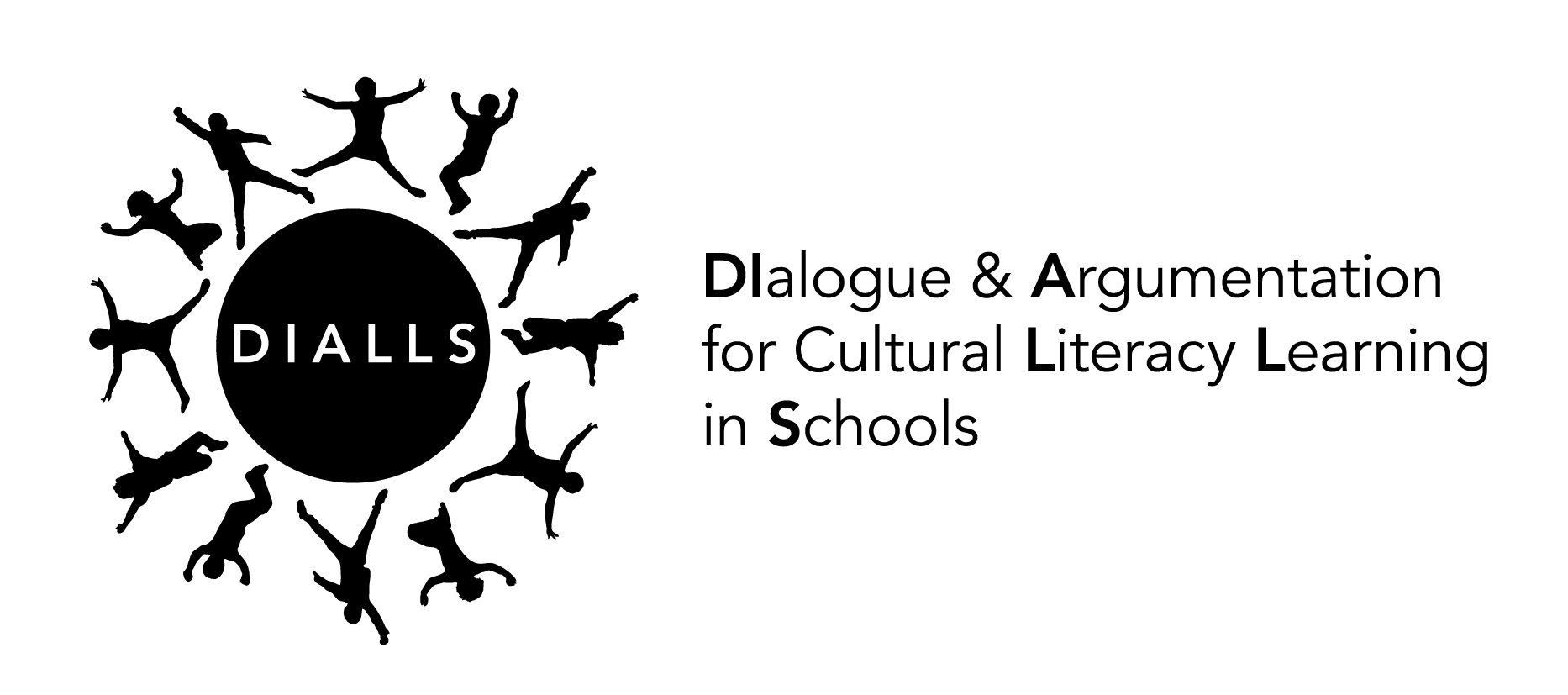Project facts
Presentation
The DIALLS project started in May 2018 and was a three-year project funded by the EC’s Horizon 2020 research and innovation fund, within the topic ‘Inlcusive, Innovative and reflective Societies’.
The aims of the project were to teach children in schools from a young age to engage together in discussions where they may have differing viewpoints or perspectives, to enable a growing awareness of their own cultural identities, and to be sensitive not only to their own identities and cultures but also to empathise with those of others.
The team included: cultural studies and civic education experts, teacher educators, psychologists and literacy specialists from ten universities in nine countries. Israel has proudly been included as an associated country to think beyond geographical borders and consider issues of cultures, heritage and identity as they extend beyond merely European concepts. We worked closely with teachers and their classes in seven countries.
As part of the project, resources for teachers and researchers have been developed.
Impacts & Results
Among the project’s specific objectives and outcomes:
Objective 1: To develop and understanding of young people’s cultural literacy through the teaching of dialogue and argumentation as a mean to understand European identities, cultures and diversities.
Outcomes:
- A cultural literacy learning programme (CLLP) for use in classrooms
- An analysis of classroom and online discussions
- A multilingual corpus: an open-access collection of transcribed discussions from classes across Europe
Objective 2: To provide comprehensive guidance for the development of cultural literacy in schools.
Outcomes:
- The Scales of Progression for Cultural Literacy Learning (SPCLL) tools to support assessment and planning.
Objective 3: To promote the emergence of young people’s cultural identities in their discussions and produced cultural artefacts.
Outcomes:
- A student-produced cultural literacy manifesto.
- A virtual gallery of student-produced cultural artefacts.
During the first year, DIALLS’ first task was to create a Cultural Analysis Framework (CAF) to guide the project, including defining the term”cultural literacy” as it would be used in DIALLS. Using the concepts in the CAF, a set of 150 European cultural texts – wordless short films and picturebooks – were selected to reflect the diversity of European cultural heritages and identities and the core concepts of cultural literacy in DIALLS. These texts can be found in the DIALLS Library. The Cultural literacy Learning Programme (CLLP) has also begun to be developed, working with a core set of 20 teachers in four partner countries to create and pilot classroom activities for each of three age groups: 5-6-year-olds, 8-9-year-olds, and 14-15-year-olds. Forty-five of the cultural texts in the DIALLS Library were selected to be used as stimuli for discussions about social responsibility and living together.
In the second year, the main phase implemented CLLP over the course of an academic year. In the early lessons, students (from pre-primary to secondary) talked together in their classrooms, their discussions stimulated by a different wordless film of picturebook and its associated cultural literacy theme. Midway through the year, students began to interact online with students from another classroom in the same country to discuss the picturebooks or films. In the latter part of the year, students were looking forward to interacting online with similar-aged classes from different countries, but unfortunately this phase of the project could not take place once schools closed during the COVID-19 pandemic. Researchers began analysing the discussions that took place in classrooms, building towards turning those transcribed sessions into an open-access multilingual corpus.
The third year of the project saw the CLLP being tested by a new set of around 100 teachers. DIALLS researchers also developed the Scales of Progression for Cultural Literacy Learning to support teachers in their planning for the development of cultural literacy knowledge and dialogue skills in the classroom. When the COVID-19 pandemic disrupted plans for a DIALLS student conference, hundreds of students and teachers rose to the occasion and created statements, short films, and cultural artefacts as contributions to the DIALLS Student Manifesto. The multilingual corpus of classroom discussions was published, along with many books and articles from DIALLS researchers. At the end of the project, the CLLP was launched as an open-access resource on the DIALLS website which can be used by any teacher, anywhere.

